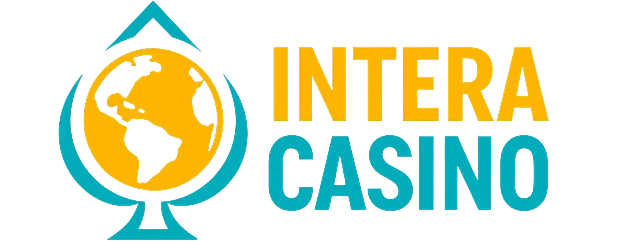At our international site InteraCasino.com, we provide unbiased information on online casinos for Canadian users, emphasizing player safety and well-being. Gambling addiction, also known as gambling disorder or compulsive gambling, is a serious mental health condition that can affect anyone, regardless of background. In Canada, where online gambling is provincially regulated and accessible to millions, it’s crucial to recognize the risks. Recent national surveys show that close to 19 million Canadians aged 15 and older engage in some form of gambling, with about 2% experiencing gambling-related problems as of 2025. This page explores symptoms, causes, effects, and resources, with a focus on Canadian support. If you or someone close to you is experiencing difficulties, seek help immediately, recovery is possible.
What Is Gambling Addiction?
Gambling addiction is an impulse-control disorder where individuals cannot resist the urge to gamble, even when it causes significant harm to their finances, relationships, mental health, or daily life. It’s classified as a behavioral addiction, similar to substance use disorders, and can manifest as compulsive, binge, or problem gambling:
Compulsive Gambling
Compulsive gambling, also called pathological gambling, is characterized by an overwhelming, persistent urge to gamble, regardless of wins, losses, or consequences. Affected individuals:
- Continue betting even when facing financial ruin or relationship breakdowns.
- Seek opportunities to wager, often at unaffordable levels, ignoring risks.
- May experience physical or emotional distress (e.g., anxiety, irritability) when unable to gamble.
- Escalate stakes to chase the thrill, as smaller bets lose their appeal.
This form is the most severe, often requiring professional intervention. In Canada, compulsive gamblers may engage excessively with lotteries, sports betting, or online slots, facilitated by easy digital access.
Binge Gambling
Binge gambling involves intense, episodic gambling sprees with periods of controlled or no gambling in between. Key traits include:
- Appearing in control most of the time, making it harder for others to notice.
- Sporadic but intense sessions, often triggered by stress, big wins, or social cues.
- Engaging in risky behaviors during episodes, such as betting beyond means or neglecting responsibilities.
- Returning to normal behavior post-episode, which can mask the problem.
Binge gamblers may go weeks or months without issues, but episodes can lead to significant financial or emotional damage. In Canada, binge gambling may spike during major sports events or casino promotions.
Problem Gambling
Problem gambling is less severe than compulsive gambling but still disrupts daily life. Characteristics include:
- Habits that interfere with work, family, or finances without reaching full compulsion.
- Frequent chasing of losses, betting more to recover money lost.
- Secrecy about gambling activities, such as hiding losses from loved ones.
- Growing preoccupation with gambling, though not constant.
Unlike casual gambling for fun, addiction involves persistent behavior despite awareness of negative outcomes. In Canada, easy access to online platforms exacerbates this, with provincial variations (e.g., Ontario’s regulated market via iGaming Ontario).
Myths and Facts About Gambling Addiction
Understanding myths helps reduce stigma and encourages help-seeking:
- Myth: You must gamble daily to have a problem.
Fact: Even infrequent gambling can cause harm if it disrupts life. - Myth: Only irresponsible people develop addictions.
Fact: It affects all backgrounds, including strong-willed individuals. - Myth: Financial loss is the only issue.
Fact: Emotional, relational, and legal harms are significant, including suicide risks. - Myth: Loved ones cause gambling issues.
Fact: Blaming others avoids personal accountability; addiction stems from multiple factors. - Myth: Online gambling is less risky.
Fact: Digital platforms’ accessibility can worsen addiction.
Signs and Symptoms of Gambling Addiction
The American Psychiatric Association’s 2018 criteria (adapted for Canada) suggest a gambling disorder if at least four of the following persist within a year (not due to another condition):
- Needing larger bets for excitement.
- Restlessness or irritability when trying to stop.
- Repeated failed attempts to quit.
- Preoccupation with gambling (e.g., planning bets, reliving wins).
- Gambling to escape distress (e.g., anxiety, depression).
- Chasing losses by betting more.
- Lying to hide gambling activities or losses.
- Risking relationships, jobs, or opportunities.
- Relying on others for financial bailouts.
Additional signs include mood swings, isolation, unexplained debts, borrowing, or selling items to fund bets. In Canada, look for excessive use of lotteries, sports betting apps, or online casinos. Self-assessment tools like the Problem Gambling Severity Index (PGSI) or South Oaks Gambling Screen (SOGS) can help, but professional diagnosis by a therapist or psychiatrist is essential, especially since co-occurring disorders (e.g., depression, substance abuse) are common among 60-80% of problem gamblers.
Recognizing You Have a Problem
Acknowledging a gambling problem can be challenging due to rationalization or denial, which masks issues from both the gambler and their loved ones. Common rationalizations include believing a “big win” will solve financial woes or that gambling is “just fun.” Signs may be subtle, especially for binge or problem gamblers, but key indicators include:
- Awareness of negative impacts (e.g., debt, strained relationships) yet continuing to bet.
- Friends or family expressing concern about time or money spent gambling.
- Feeling unable to cut back despite trying, or gambling more than intended.
- Hiding losses or time spent gambling to avoid judgment.
If you suspect a problem or others have voiced concerns, act early. The American Psychiatric Association recommends basic self-help strategies to manage cravings:
- Reach Out: Confide in a trusted friend or attend a Gamblers Anonymous meeting for support.
- Distract Yourself: Engage in hobbies, exercise, or socializing to avoid isolation.
- Postpone Gambling: Delay urges for 15-30 minutes; the impulse may weaken.
- Reality Check: Reflect on past gambling outcomes and their emotional/financial toll.
For practical tools to manage gambling, visit our Responsible Gambling guide.
Causes and Risk Factors
Gambling addiction arises from a complex interplay of factors:
Biological Factors
Gambling triggers dopamine release, mimicking drug-induced highs, reinforcing addictive cycles. Studies show:
- Brain reward system changes in addicts, with heightened sensitivity to wins.
- Serotonin or norepinephrine imbalances increase impulsivity.
- Genetic predisposition: Up to 50% of risk is hereditary; children of gamblers are 2-4 times more likely to develop issues.
- Neuroimaging reveals altered prefrontal cortex activity, impairing decision-making.
Psychological Factors
Mental health conditions significantly increase risk, with 60-80% of problem gamblers having co-occurring disorders:
- Depression, anxiety, ADHD, or bipolar disorder may lead to gambling as a coping mechanism.
- Low self-esteem or unresolved trauma can drive escapism through betting.
- Cognitive distortions, like overestimating win odds or believing in “hot streaks,” perpetuate habits. In Canada, stress from economic pressures or isolation may amplify these triggers.
Environmental Factors
External influences shape gambling behavior:
- Early Exposure: Starting young (e.g., teens betting on sports) increases addiction risk by 2-3 times.
- Big Wins: Early large payouts create false confidence, encouraging riskier bets.
- Family History: Growing up with gambling-normalizing parents heightens vulnerability.
- Cultural Acceptance: Canada’s $9 billion gambling industry, fueled by lotteries and ads (e.g., sports betting), normalizes betting.
- Online platforms’ 24/7 availability and aggressive marketing exacerbate risks.
Social Factors
Social dynamics contribute:
- Peer Pressure: Friends encouraging betting, especially in social settings like sports events.
- Online Access: Easy-to-use apps and anonymity lower barriers to excessive gambling.
- Socioeconomic Stress: Debt, unemployment, or poverty drive some to gamble for quick fixes.
- In Canada, urban areas with high casino or betting app exposure see elevated problem gambling rates.
Effects of Gambling Addiction
The consequences are profound:
- Financial: Debt (average $20,000-$100,000 among addicts), bankruptcy, fraud, or theft.
- Mental Health: Anxiety, depression, guilt; 15-20% of compulsive gamblers attempt suicide.
- Physical: Stress-related issues (insomnia, headaches, heart problems); neglected self-care.
- Social: Divorce, family conflict, isolation; domestic abuse in severe cases.
- Legal/Community: Crime (e.g., embezzlement), job loss, homelessness; Canada Safety Council notes community-wide impacts.
How to Help Someone with a Gambling Addiction
Supporting a loved one requires empathy and boundaries. Initial signs they may need help include:
- Lying about gambling frequency or losses.
- Deteriorating relationships to prioritize betting.
- Admitting they might have a problem but feeling unable to stop.
- Borrowing money frequently or selling possessions.
- Spending excessive time gambling or neglecting necessities like bills or food.
Steps to Help
- Educate Yourself: Learn about addiction via resources like the Responsible Gambling Council or CAMH to understand its impact.
- Be Supportive, Not Judgmental: Discuss how gambling affects their life and yours in a calm, non-confrontational way. Avoid ultimatums or shaming.
- Encourage Treatment: Suggest professional help (e.g., therapy, helplines) and offer to assist, such as attending a Gamblers Anonymous meeting together.
- Avoid Enabling: Don’t pay off debts, as this fuels the cycle. Instead, guide them to financial counseling or debt management services.
- Consider an Intervention: Organize a structured, positive conversation with family/friends to express concern. Consult a professional interventionist for guidance to keep the tone supportive, not accusatory.
- Protect Yourself: Set financial and emotional boundaries to avoid enabling or personal harm.
Helplines like ConnexOntario (1-866-531-2600) offer advice for families. Joining Gam-Anon provides peer support for loved ones.
Self-Help Strategies to Overcome Gambling Addiction
Start with:
- Acknowledge the problem and track triggers (e.g., stress, ads).
- Block access: Use Gamban or bank payment blocks; limit cash access.
- Replace gambling: Engage in exercise, hobbies, or volunteering.
- Manage cravings: Delay urges, practice mindfulness, call a helpline.
- Build support: Share with friends or join forums like Gamblers Anonymous.
- Address underlying issues: Seek therapy for mental health conditions.
Treatment Options
Effective treatments include:
- Therapy: Cognitive-behavioral therapy (CBT) to reframe thoughts; motivational interviewing to build resolve.
- Medications: SSRIs for depression/anxiety; naltrexone to curb urges.
- Support Groups: Gamblers Anonymous (12-step) or SMART Recovery for peer support.
- Inpatient/Outpatient Programs: Structured rehab, often covered by Canadian health plans.
- Financial Counseling: Debt restructuring to regain stability.
Relapse rates are 50-70% in the first year, but consistent treatment improves outcomes.
Preventing Suicide in People with Gambling Problems
Compulsive gambling carries a high suicide risk, with 15-20% of addicts attempting it due to financial despair or shame. Warning signs include hopelessness, withdrawal, or talk of self-harm. Immediate action:
- Canada: Call the Canada Suicide Prevention Service at 1-833-456-4566 (24/7) or text 45645 (4 PM-12 AM ET).
- Crisis Text Line: Text HOME to 686868 for instant support.
- International: Visit www.befrienders.org for global helplines. Encourage professional help and stay vigilant.
Gambling and Youth
In Canada, the legal age for betting and casino play is 18-19 depending on the province, and participation below this age is strictly prohibited.. Prevent it by:
- Educating on low win odds and risks.
- Modeling responsible behavior.
- Using parental controls to block gambling sites.
- Monitoring for signs like unexplained money or betting talk.
Canadian Resources and Helplines
Confidential, 24/7 support:
- Responsible Gambling Council (RGC): Education and tools. Call 1-888-391-1111 (Ontario) or visit responsiblegambling.org.
- Centre for Addiction and Mental Health (CAMH): Treatment and research. Call 1-800-463-2338 or visit camh.ca.
- ConnexOntario: Ontario helpline. Call 1-866-531-2600 or visit connexontario.ca.
- Gamblers Anonymous Canada: Peer meetings. Visit gamblersanonymous.org.
- Government of Ontario – iGaming Ontario (IGO) – igamingontario.ca.
- Provincial Helplines:
- Alberta: 1-866-332-2322
- British Columbia: 1-888-795-6111
- Manitoba: 1-800-463-1554
- New Brunswick: 1-800-461-1234
- Newfoundland: 1-888-899-4357
- Nova Scotia: 1-888-347-8888
- Nunavut: 1-800-265-3333
- Ontario: 1-888-230-3505
- Prince Edward Island: 1-888-299-8399
- Quebec: 1-800-461-0140
- Saskatchewan: 1-800-306-6789
International: National Council on Problem Gambling (USA) at 1-800-522-4700; GamCare (UK) at 0808-8020-133.
Frequently Asked Questions (FAQ)
What causes gambling addiction?
A mix of biological (dopamine, genetics), psychological (mental health), and social/environmental factors (access, culture).
How do I recognize a problem?
Four or more persistent symptoms (e.g., chasing losses, lying) suggest a disorder; professional assessment is key.
Can it be treated?
Yes, with therapy, support groups, and medications; early action improves success.
How do I help a loved one?
Offer non-judgmental support, encourage treatment, set boundaries, and avoid enabling.
Are there Canadian risks?
Widespread gambling access and marketing increase exposure; provincial resources address this. If in crisis, contact a helpline immediately.

